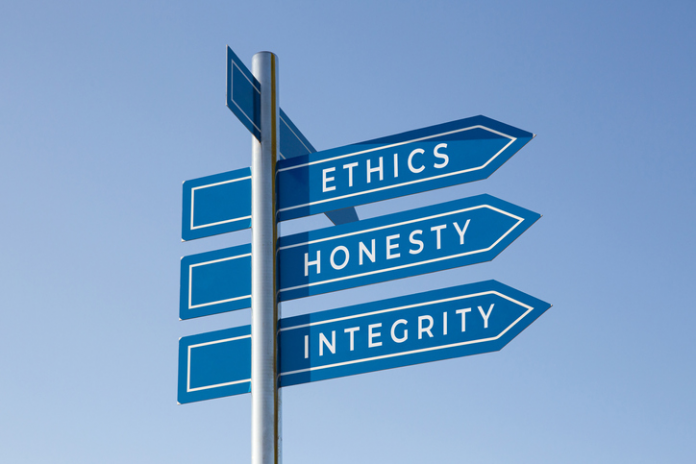The White House Office of Science and Technology Policy (OSTP) published a Scientific Integrity Policy (SIP) for federal agencies, on June 22.
The purpose of the SIP is “to provide instruction and guidance to enhance and promote a continuing culture of scientific integrity” at the OSTP and other Executive Branch agencies.
Congress established the OSTP in 1976. It resides in the Executive Office of the President, has specific advisory duties, and is a source of scientific and technological analysis and judgment for the president.
The policy applies to the “whole of government,” and “all staff, including career employees, contractors, and political appointees.”
Defining Terms
OSTP’s policy “provide[s] instruction and guidance to enhance and promote a continuing culture of scientific integrity.”
The SIP defines scientific integrity as “adherence to professional practices, ethical behavior, and the principles of honesty, objectivity and transparency when conducting, managing, using the results of, and communicating about science, and scientific activities. Inclusivity and protection from inappropriate influence are hallmarks of scientific integrity.”
The SIP section on policy “requirements” reflects prior guidance about scientific integrity issued during the administrations of President Joe Biden and President Barack Obama.
A bullet-pointed section of “guiding principles” states, in part: “Science benefits from dissent within the scientific community to sharpen ideas and thinking. Scientists’ ability to freely voice the legitimate disagreement that improves science should not be constrained. … Transparency underpins the robust generation of knowledge and promotes accountability to the American public.”
‘Free of Misinformation’
Other notable principles regard the public availability of scientific findings and investigating possible integrity lapses.
“Violations of scientific integrity should be taken as seriously as violations of government ethics, with comparable consequences,” states the SIP.
One goal of the policy is to “[r]eflect scientific information appropriately and accurately and ensure that it is free of misinformation.” The SIP does not define misinformation, but the Surgeon General’s 2021 advisory titled “Confronting Health Misinformation” states it is information “… that is false, inaccurate, or misleading according to the best available evidence at the time.“
Government Practice
The policy has raised questions about whether it is a product of politics or science after the federal government worked to suppress opinions with which it disagreed during the COVID-19 pandemic.
Attorneys general from Louisiana and Missouri, along with several individuals, argued in Missouri v. Biden that U.S. government officials coerced many social media companies, including Google and Facebook, to suppress and censor what the government called “misinformation,” “disinformation,” or “malinformation” about COVID and other significant issues.
On July 4, U.S. District Judge Terry A. Doughty granted a preliminary injunction barring eight federal agencies and many government officials from meeting or communicating with various social media companies “for the purpose of urging, encouraging, pressuring or inducing in any manner … removal, deletion, suppression, or reduction of content containing protected free speech.”
The judge’s 155-page ruling extensively documented circumstances where government officials significantly encouraged and coerced social media companies to censor and remove information—“almost exclusively conservative”—that questioned or was contrary to government policies, effectively making the companies government agents.
Doughty wrote that the “seemingly unrelenting pressure by [the government] had the intended result of suppressing millions of protected free speech postings by American citizens” and the government had assumed a role “similar to an Orwellian ‘Ministry of Truth.’”
Protecting Government Censorship
The government opposed Judge Doughty’s preliminary injunction, which was stayed by the 5th Circuit Court of Appeals, allowing the government to continue pressuring social media companies.
The stay is being challenged by the plaintiffs. The case will eventually be heard on its merits in the 5th Circuit.
John Vecchione, a senior litigation counsel for the New Civil Liberties Alliance, which represents individuals in Missouri v. Biden, said the government doesn’t want transparency, hasn’t rebutted “compelling facts” about government tactics, and government agencies are “fighting like maniacs” to continue suppressing free speech.
In addition to overlooking the current political climate, there are questions about enforcement of the SIP. OSTP serves only in an advisory capacity and while OSTP uses mandatory language like “must adhere to,” “requirements,” and “ensure compliance,” a policy is not a law or regulation and cannot be enforced.
Censored Speak Out
Jay Bhattacharya, M.D, Ph.D., a co-author of the Great Barrington Declaration and one of the private plaintiffs in Missouri v. Biden, said OSTP’s position on scientific integrity “presents laudable goals of transparency and honesty.”
During the pandemic “the government disastrously failed in achieving these goals,” said Bhattacharya. Top scientific bureaucrats “abused their power by smearing outside scientists who were critical of their policy stances,” and they organized “public, devastating takedowns of their positions.”
In many cases, according to Bhattacharya, government demands included suppression of inconvenient but valid scientific findings including that the COVID shot does not prevent disease transmission.
Scott Atlas, M.D., who served as Trump’s COVID-19 advisor, said the “government itself has violated public trust and harmed the public by directly censoring information” and adds the media are also responsible for permitting the free flow of information that is “critical to a free society.”
Bhattacharya urges the government to abide by OSTP’s scientific integrity principles, stop fighting the temporary injunction in Missouri v. Biden, and dismantle its censorship efforts.
Dvorah Richman, J.D. (dvorahrichman@gmail.com) writes from Fairfax, Virginia.
This headline of this article was changed on August 16, 2023





















